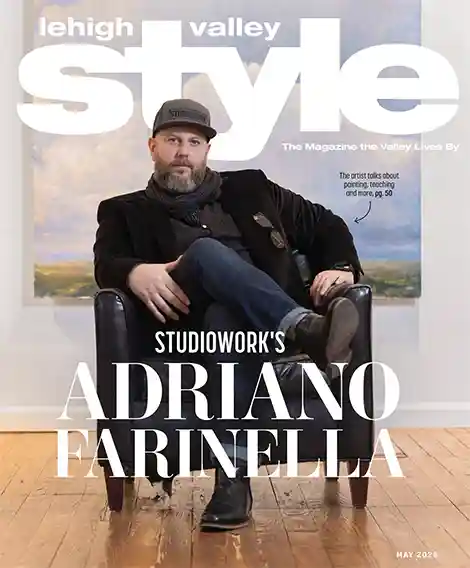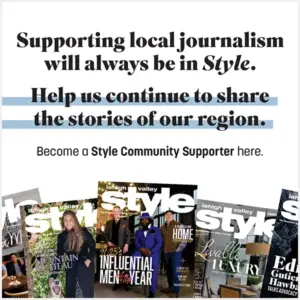When was the last time you experienced joy?
That deep, resounding sensation that your whole body feels. When was the last time you laughed with a friend or felt truly delighted? When was the last time you sat still for 10 minutes, without interruption and just breathed in and out? I'm writing this from a 54-day adventure, camping in my van, driving cross country with my daughter and experiencing the majesty of our country's mountains, deserts and the depths of the ocean on the West Coast. We've visited with family members and friends along our travels and experienced being held by community in a truly beautiful way.
If you had told me three years ago I would be on this adventure of a lifetime, I would have laughed at the impossibility of it all. I am the founder of Allium. We design florals for gorgeous weddings in the Lehigh Valley and beyond. In 2021, the business was just bouncing back from over 100 pandemic cancellations. We had a full slate of weddings, both new ones and so many that had been rescheduled. I was drowning. I'd never before experienced stress like this.
I worked, I created, I came home and was a mother and a wife—but I was lost to joy. In fact, I was lost to so much of myself. Both of my parents had passed away from cancer in my early 30s. I'd spent much of my life in roles where pleasing others was essential to my job or to my community. Putting myself first seemed wrong, selfish somehow, and so I continued to give and give, ignoring my body and my feelings. In fact, the more I threw myself into work and a busy schedule, the less I had to feel anything.
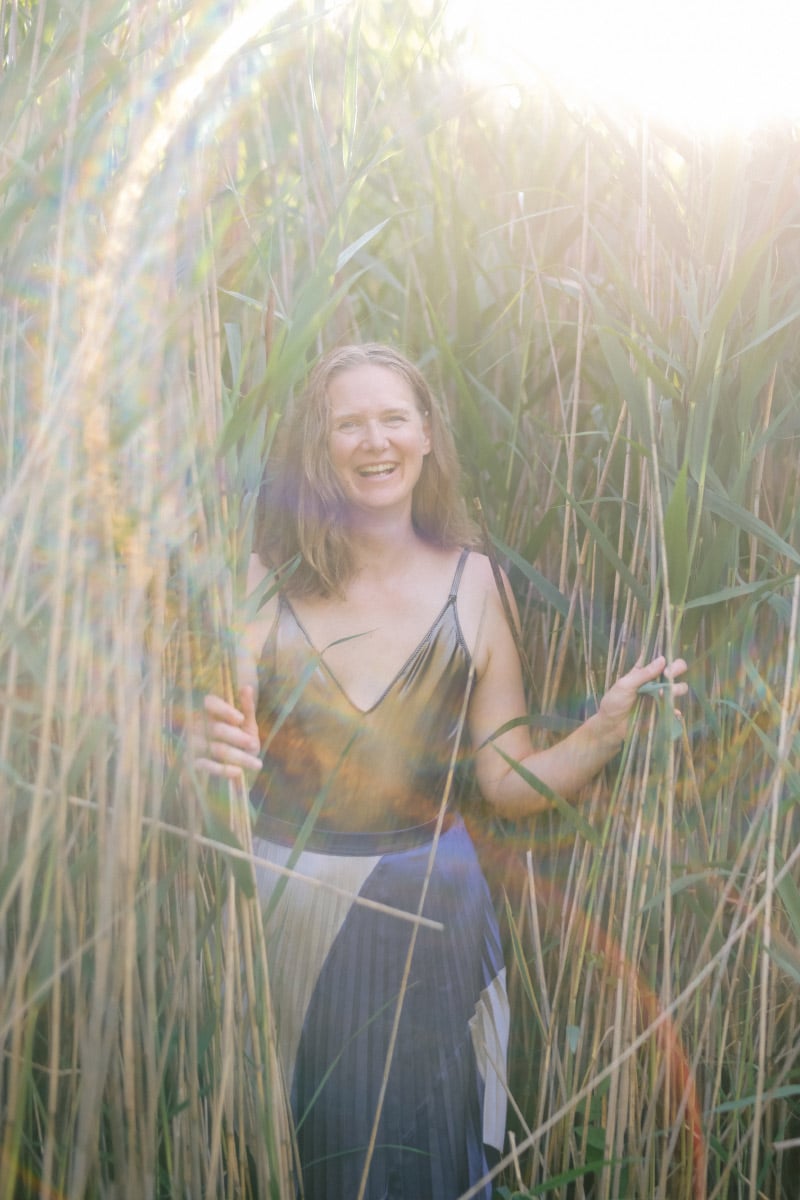
It's surprisingly easy to live that way—wake up, look at your phone, answer emails, run all the errands. I was so proud of the fact that I could multitask better and accomplish more in a day than anyone I knew.
I was so occupied, in fact, that I almost missed my annual mammogram, scheduled right in the middle of our busiest time of the wedding season. I'm so thankful I went. I got called back for extra images—and an ultrasound. There in that room, while the tech moved the wand quietly over my right breast, I realized there was a problem. She called in the radiologist who explained to me that she was pretty confident that we were looking at cancer.
Time stood still. No one prepares you for that moment, that conversation.
Everything moved in slow motion. A nurse pulled me in to talk with her. I sat sobbing, hardly able to believe this was happening to me. Appointments were made. First, a biopsy to determine the type of breast cancer, then multiple meetings with doctors and surgeons to discover what my best treatment option would be. I felt I had no control over anything. The only thing I could do was research—and so I dove in deep, because it was all I felt I could do. I learned about cryoablation. My doctors weren't totally in agreement that this option of freezing my tumors with a probe would be the best fit for me, but I was determined to save my breasts. I flew to Los Angeles where a breast surgeon performed my cryoablation. Cryoablation is currently performed for prostate cancer, and many hospitals are now part of the research and trials, with the hopes that this could be a less invasive treatment for women who would normally undergo a lumpectomy.
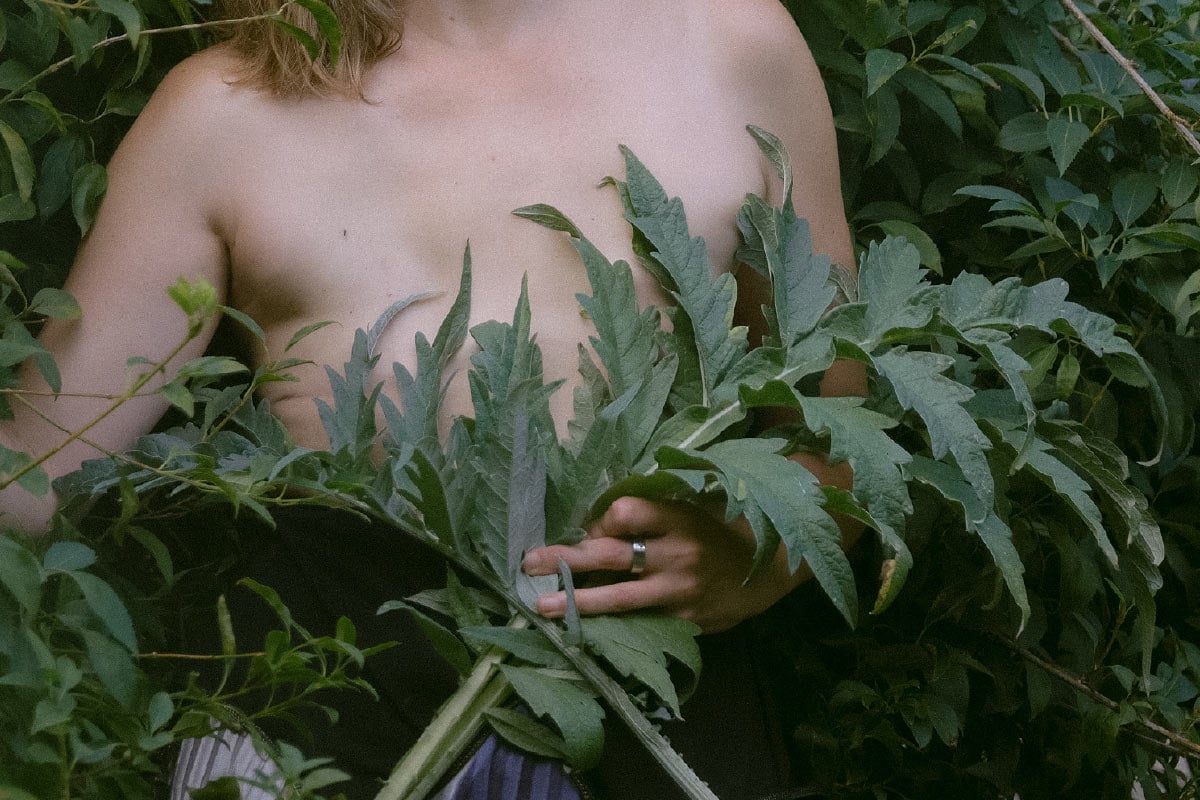
A Metabolic Approach
The cryoablation was just the beginning, though. I went through a massive life shift, after being inspired by Dr. Nasha Winters and her book, The Metabolic Approach to Cancer. This approach looks at the body as a terrain—and helps us determine if we are creating a place where cancer can or cannot thrive. I desperately wanted to understand how I could have gotten cancer. I didn't have the BRCA gene. I had a job that wasn't sedentary. I ate “healthy” food. But when I really stopped to examine my life under this new lens, I realized I had not been prioritizing my health.
I'd gained 50 pounds since college and was “too busy” to exercise on a regular basis. I drank 1–2 glasses of wine almost daily and hardly any water. My diet looked conventionally healthy from the outside, but I regularly relied on carbs and sugar for that quick hit of dopamine to keep me going through the day. I went to bed past midnight regularly.
I started working with a naturopathic doctor and had a fascinating nutrition genome test that mapped all of my specific genetic variants. I quickly realized why my raw vegan diet I adopted after diagnosis wasn't giving me the kind of energy people talked about. I started fasting. I switched to a Mediterranean keto diet, and said farewell to grains, sugar and seed oils. Occasionally I'll have something that doesn't fit this profile, but I'm always amazed at how much better I feel when I'm eating keto, with no bloating and limitless energy.
Cancer is never caused by one thing, but after a lot of testing, it became clear that my genetic profile really struggled to let go of xenoestrogens. This synthetic estrogen was circulating in my body, causing all kinds of havoc. Suddenly my history of fibroids starting in my early 20s made sense. Sources of xenoestrogens include BPAs in plastics, synthetic fragrances and, most importantly for my situation, pesticides. For 16 years, I'd been working bare-handed with flowers from South America, heavily sprayed with pesticides. Now I wear gloves all the time when working with the flowers, have excellent air filtration and have tried to eat only organic produce, avoiding glyphosate-sprayed crops as well.
My feelings about exercise have shifted as well. Since my genetic makeup doesn't detoxify in an optimal way, finding ways to sweat are critical for my longevity. I use a sauna at home but fell in love with hot yoga. I also walk, hike, bike and dance. From belly dance to 5Rhythms dance, I've had so many opportunities to move my body in a way that feels truly joyful. Paddle boarding also brings me so much delight. Making movement play for me has been the key to avoiding the drudgery I previously associated with exercise.
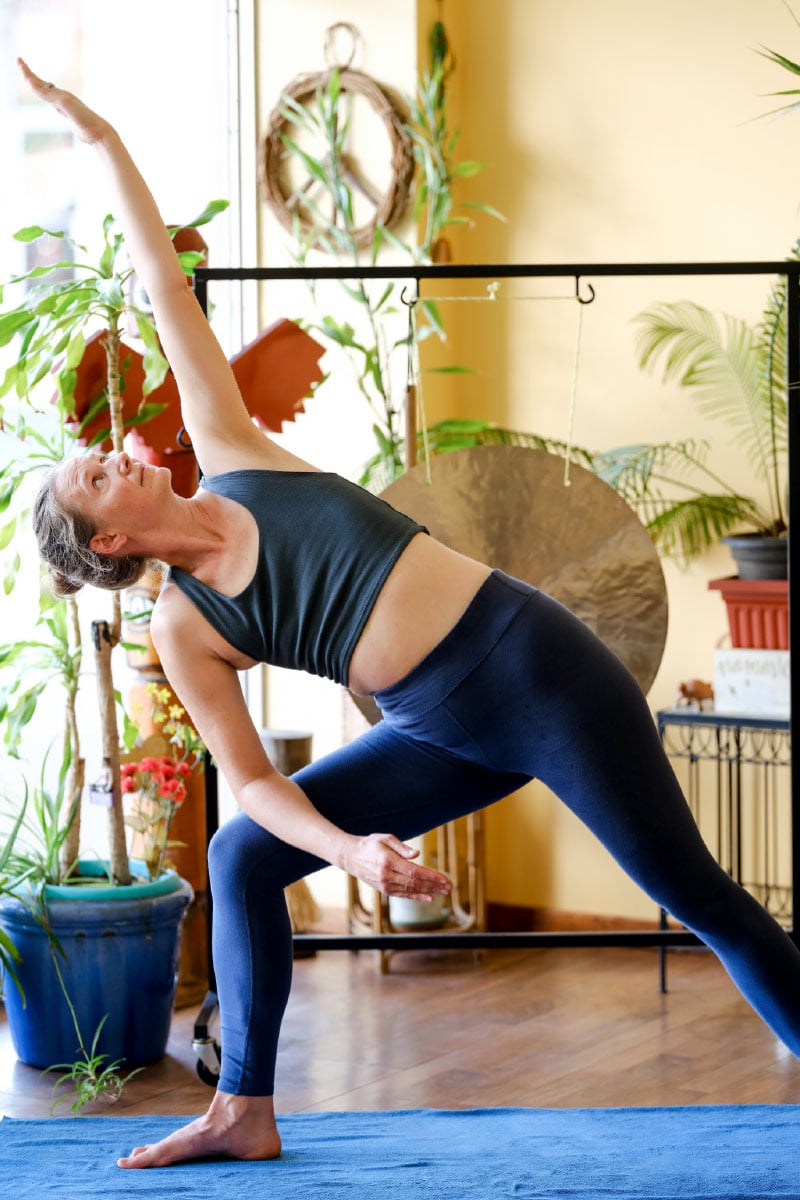
Feeling the Hard Feelings
The biggest shift was certainly an emotional one. I knew that I'd spent most of my life trying not to feel hard emotions. I was not in touch with what my body felt. Learning how to pause when a strong emotion comes up and feel where in my body that emotion hits has truly helped me reconnect with myself. EMDR and cranio-sacral therapy have been incredibly helpful tools on this journey, but it wasn't until I experienced a week-long meditation retreat that I found the key in stillness. My fast pace was suddenly replaced with a practice that slowed me down—and I didn't hate it. In fact, I looked forward to it.
Asking for help is hard. I still struggle with it. If you've lived through trauma, the tendency is to do it all yourself, and our society rewards that. Look at her doing it all. But the truth is, we do best in community—and my radical shift could not have been possible without the incredible support of my husband, daughter, family, friends and my beyond-amazing team at work. So many people stepped in when I simply could not. I stepped back from design. I hired managers in my business and moved to doing the client work that I love so dearly. It gave me the time I needed to heal, exercise and sit with the things that were hard.
Three years later, I'm a very different person. A year after my cryoablation, a small spot was found in another area of my breast, right next to a mammogram marker that had migrated. At that point, I realized that I could not afford to continue to pay out of pocket for cryoablation. A brief metastatic breast cancer scare led to ovary removal first and, a few months later, I had a bilateral mastectomy to an aesthetic flat closure. I worked with a terrific surgical team from Lehigh Valley Health Network, who fully supported my decision. I knew that implants were not going to be a good fit for me. I didn't want to deal with the risks or potential illness that come along with them—or the fact that I would need the implants swapped out every 10 years. The other option, creating a breast mound from my own tissue (DIEP reconstruction), would have involved multiple surgeries and losing some of my back muscle.
I was fortunate enough to be introduced to a Facebook group called Fierce, Flat, Forward and saw so many women in that group, proud to be “flatties” and living their very best lives. So now I too am flat—and living enthusiastically with no evidence of disease.
More importantly, I've come to know this new body in ways that continue to surprise me as I grow and heal. I prioritize my joy and health every day. Cancer has truly been a gift for me—the wake-up call I needed to shift into the person I am becoming each bonus day I am gifted.
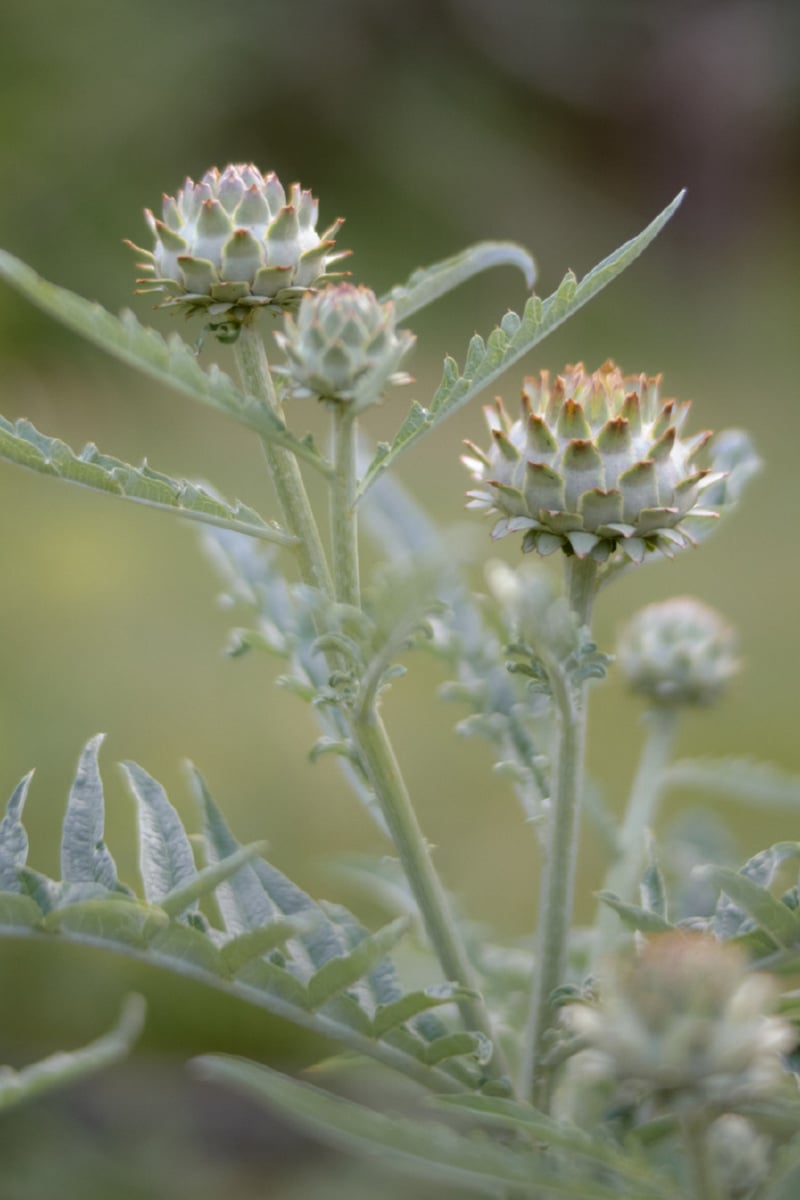
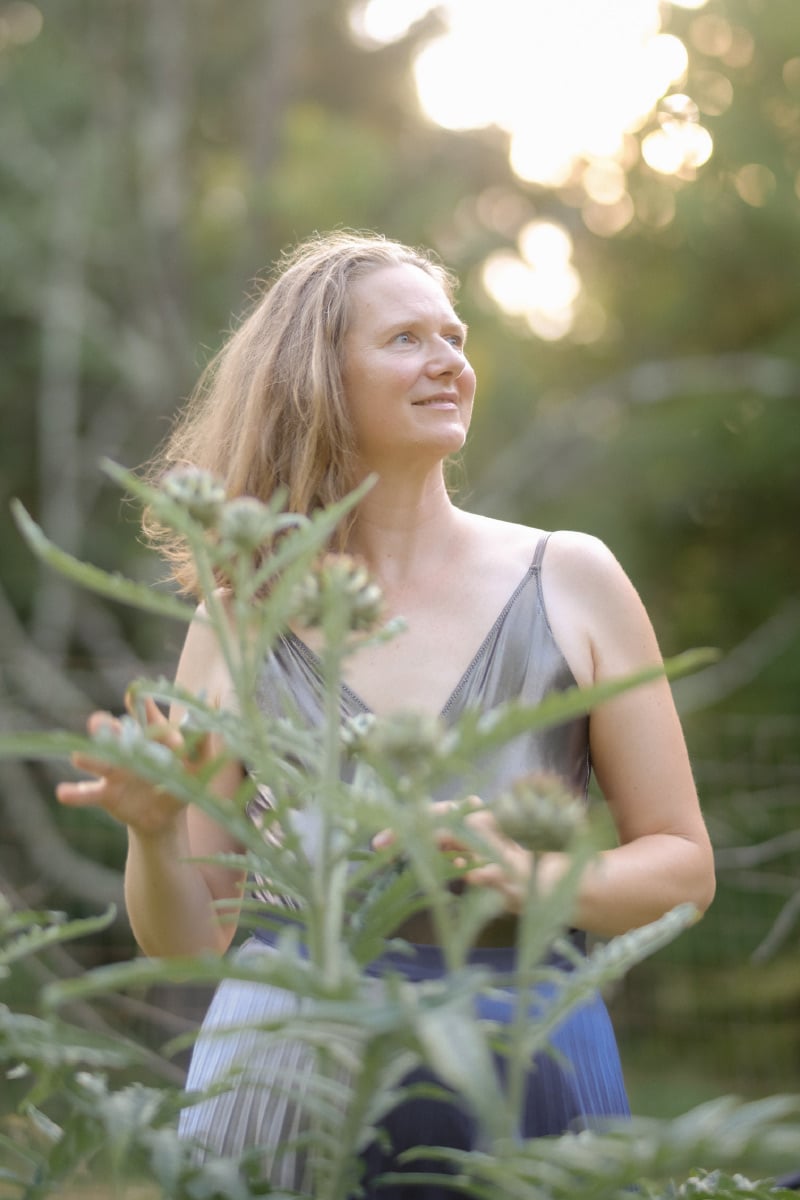
Moving Forward
Cancer is not linear. You don't just get to have a mastectomy and move on. There is ongoing testing, coming to terms with your new physique, medication for some and the ever-present fear that a simple twinge, cough or cold may mean the progression of disease. I've taken an integrative approach in my ongoing care, balancing my annual visits with my wonderful oncologist, Dr. Kinney at LVHN, and essential wisdom from my naturopathic care team, who closely follow my health with bimonthly bloodwork and blood tests that my oncology team does not offer.
But coming into my own and knowing my body, feeling a range of emotions again, taking the time to sit quietly and contemplate in guided meditations, moving in playful ways, finding community and being present, those aren't just clichés for me. Yes, I may have a genetic blueprint of why I might have ended up with cancer, but I'm making active changes in my life that impact my epigenetics, moving the needle in my health in incredible ways that continue to show up positively in my bloodwork.
Cancer cells exist in all of us, but are we able to support ourselves so that they don't grow and proliferate? What is our terrain like? As women, are we caring for ourselves, or are we so depleted caring for everyone around us that we forget what it's like to live in our bodies? To feel?
The cancer was part of me, my cells, my body. This is why I don't resonate with the idea of “fighting” cancer. Three years later, I can look back and say I am grateful for it. My cancer sent me a clear message about what needed to change so that I could come closer to wholeness, to vibrant health and to prioritize what was truly important in my life.
Sarah's Favorites
Healing
Craniosacral work with Cheyenne | cheyenneautumnwhitehorse.com
New Moon Cacao Ceremony with Mama Flowers | mamaflowers.co
Radiant Healing Together | radianthealingtogether.com
EMDR Therapy | multiple practitioners
Liber8 Program | liber8.health
Movement & Meditation
Hot Yoga Hut | hotyogahut.com
Belly Dance | tahya.com
5Rhythms Dance | 5rhythms.com
Dr. Joe Dispenza Retreats and Meditation | drjoedispenza.com
Integrative Care
Nutrition Genome | nutritiongenome.com
Well of Life Center | welloflifecenter.com
Options Naturopathic Virtual Visits | optionsnaturopathic.com
Laser & Acupuncture | nu-house.com
Books
The Metabolic Approach to Cancer | Dr. Nasha Winters & Jess Higgins Kelley
Radical Remission | Kelly Turner
Fast Like A Girl | Dr. Mindy Pelz
Facebook Groups
Radiant Healing Together
Fierce, Flat, Forward
Breast Cancer Integrative Healing {Integrative Tribe}
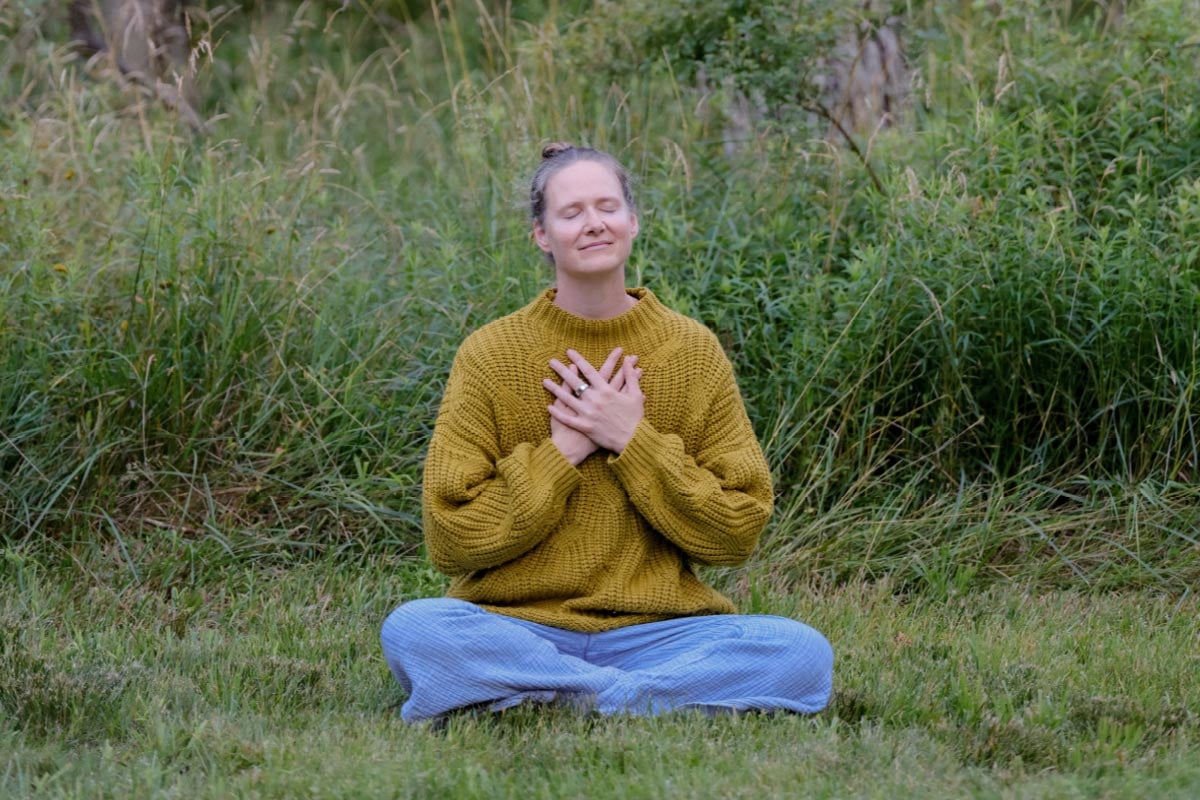
Published as “A Life-Changing Diagnosis" in the October 2024 edition of Lehigh Valley Style magazine.







